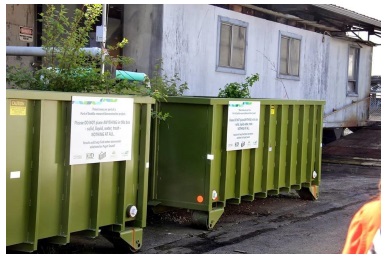
| April 28, 2015 | |
Environment: Los Angeles, Seattle
![]() Print this Article | Send to Colleague
Print this Article | Send to Colleague
EPA Awards $1.3 Million Clean Diesel Grant to the Port of Los Angeles
The U.S. Environmental Protection Agency (EPA) has awarded a $1.3 million grant to the Port of Los Angeles to fund the replacement of an older diesel cargo crane with a new, zero-emission electric-drive crane. Los Angeles is one of four U.S. ports receiving a total of $5 million for projects aimed at significantly reducing diesel emissions and improving air quality, particularly for communities near port operations.
"Forty percent of the nation’s total imports come through the San Pedro Bay ports," said Jared Blumenfeld, EPA’s Regional Administrator for the Pacific Southwest. "Replacing cargo equipment with zero emissions alternatives will not only help overall air quality in Southern California, but directly benefit fence-line communities living near the port."
The Los Angeles project will replace a 950-horsepower, diesel crane with a new electric crane. The 110-foot crane will be used to unload and process scrap metal on and off moving containers for overseas shipment.
The grants are funded through the Diesel Emissions Reduction Act (DERA) and target ports located in communities that have poor air quality. Since 2008, EPA has awarded about $17 million in DERA funding and leveraged $16 million from public and private partners to clean up diesel vehicles, vessels and equipment at the San Pedro Bay ports.
Additionally, since 2008 EPA has awarded more than 700 grants in 600 communities across the country. And 150 DERA grants have been targeted to improving air quality at or near ports, with about $175 million in funding. EPA estimates that every $1 in DERA funding generates up to $13 in health care savings. In addition, every dollar of DERA funding, leverages $2-3 from project partners.
Seattle Water Quality Project Reduces Polluted Runoff from Port Facilities
The Port of Seattle and environmental groups last week shared results from a pilot project to reduce toxic pollutant runoff reaching Puget Sound, which is estimated to receive between 14 and 94 million pounds of toxic pollutants every year. The port has hosted a study site for two unique metal boxes that have bloomed into rain gardens to help reduce pollutants. This effort is in partnership with King Conservation District, Sustainable Seattle, Gealogica LLC, and Splash Boxx LLC.
The so-called Splash Boxxes were installed at Terminal 91, with results gathered every four weeks. These boxes are a blend of rain garden and cistern, practices referred to as low impact development, or LID.
According to the port, the study will help shed light on the potential for these bioretention planter boxes to improve water quality of polluted runoff in commercial/industrial areas and whether soil mixes used in rain gardens and bioswales could be improved.
Moving Green Infrastructure (MGIF) is a research/demonstration project to test the water quality performance of two stormwater treatment techniques, a large "rain garden in a box" and a special soil mix with local, volcanic sands. Water quality from a roof in an industrial port area is being tested before and after going through the boxes to see how these two techniques perform.
"After eight months of sampling, the zinc levels are 1000 times lower at the Boxx output than the roof input after going through the soil and plants in the boxes," said Alessandra Zuin of Gealogica LLC, the project lead.

Splash Boxxes at Seattle’s Pier 91 during Earth Day 2015 celebration
Photo/Port of Seattle
